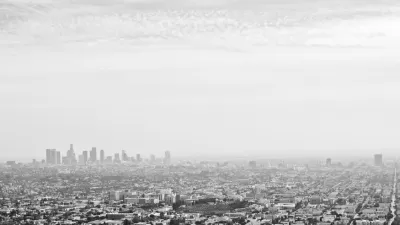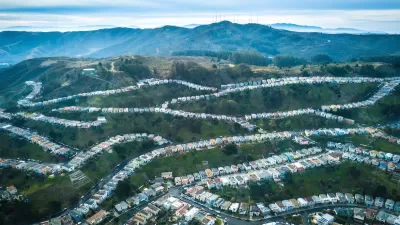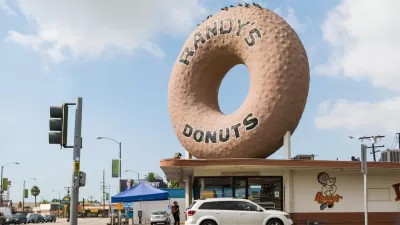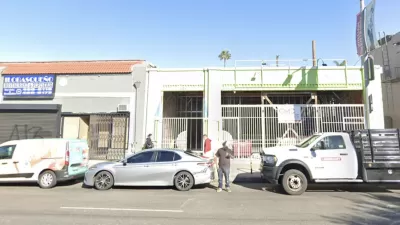A mixed-use development proposal in South L.A. highlights a blind spot of progressive urbanism—the gap between what checks all the boxes and what low-income communities really need.

The development known as The Reef is all about "placemaking." Located next to a Metro rail station, it aims to increase density as well as housing supply, attract investors to South Los Angeles, and create jobs through a local-hire agreement.
In addition to your typical mixed-use fare—residential, hotel, retail, and restaurant—the billion-dollar project will ultimately include amenities designed to meet specific community needs: a grocery store, a pharmacy, a bank, investment in a new DASH route (the hyper-local bus service run by LADOT).
But what residents want is much more basic: not to have to leave once the project moves in.
In an important analysis in Streetsblog LA, Sahra Sulaiman writes:
To an urbanist or a livability advocate, [The Reef's] approach might sound like it hits all the right notes … But to a lower-income black or Latino resident of Historic South Central – a historically disadvantaged community with the distinction of having the most overcrowded housing in the country – that approach and its potential ripple effects present a much more complicated and far less rosy picture.
Plans presented at public meetings "pitted members of the community against each other by seemingly asking them to make the impossible choice between jobs and housing," she explains. The promise of mostly temporary jobs belied the certainty of long-term increases in rents and the cost of living—leading to likely permanent displacement.
Community activists like the UNIDAD coalition (which went up against Geoff Palmer’s Lorenzo project in 2011) want The Reef to skip the fitness center and tackle those consequences head on. Their community benefits proposal asks developers to help secure eviction protections, an emergency rental aid fund, and other anti-displacement tools for residential and commercial tenants, as well as safety solutions that won’t further criminalize youth of color and the homeless.
These demands, Sulaiman writes, reflect "an understanding of how a history of discriminatory planning policies, disinvestment, and disenfranchisement created the very conditions that make the community so favorable to developers today."
But as she also notes, developers are only one piece of the puzzle. The difference between what they can or are willing to offer, and what residents want and need, "highlight[s] how few tools we actually have at our disposal to ensure our communities become more inclusive as they grow."

Depopulation Patterns Get Weird
A recent ranking of “declining” cities heavily features some of the most expensive cities in the country — including New York City and a half-dozen in the San Francisco Bay Area.

California Exodus: Population Drops Below 39 Million
Never mind the 40 million that demographers predicted the Golden State would reach by 2018. The state's population dipped below 39 million to 38.965 million last July, according to Census data released in March, the lowest since 2015.

Pennsylvania Mall Conversion Bill Passes House
If passed, the bill would promote the adaptive reuse of defunct commercial buildings.

Google Maps Introduces New Transit, EV Features
It will now be easier to find electric car charging stations and transit options.

Ohio Lawmakers Propose Incentivizing Housing Production
A proposed bill would take a carrot approach to stimulating housing production through a grant program that would reward cities that implement pro-housing policies.

Chicago Awarded $2M Reconnecting Communities Grant
Community advocates say the city’s plan may not do enough to reverse the negative impacts of a major expressway.
City of Costa Mesa
Licking County
Barrett Planning Group LLC
HUD's Office of Policy Development and Research
Mpact Transit + Community
HUD's Office of Policy Development and Research
City of Universal City TX
ULI Northwest Arkansas
Town of Zionsville
Urban Design for Planners 1: Software Tools
This six-course series explores essential urban design concepts using open source software and equips planners with the tools they need to participate fully in the urban design process.
Planning for Universal Design
Learn the tools for implementing Universal Design in planning regulations.


























